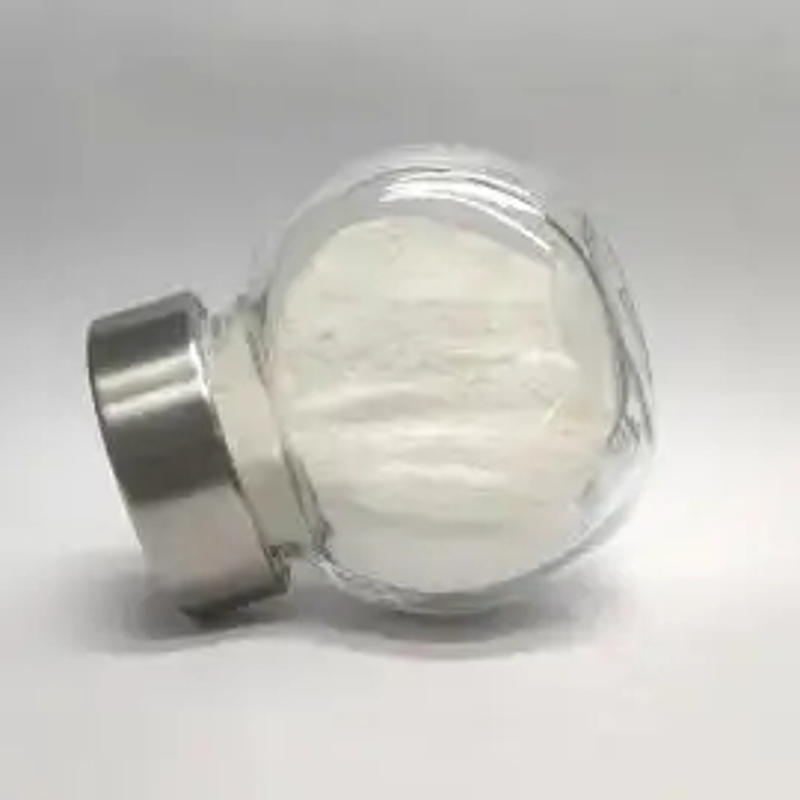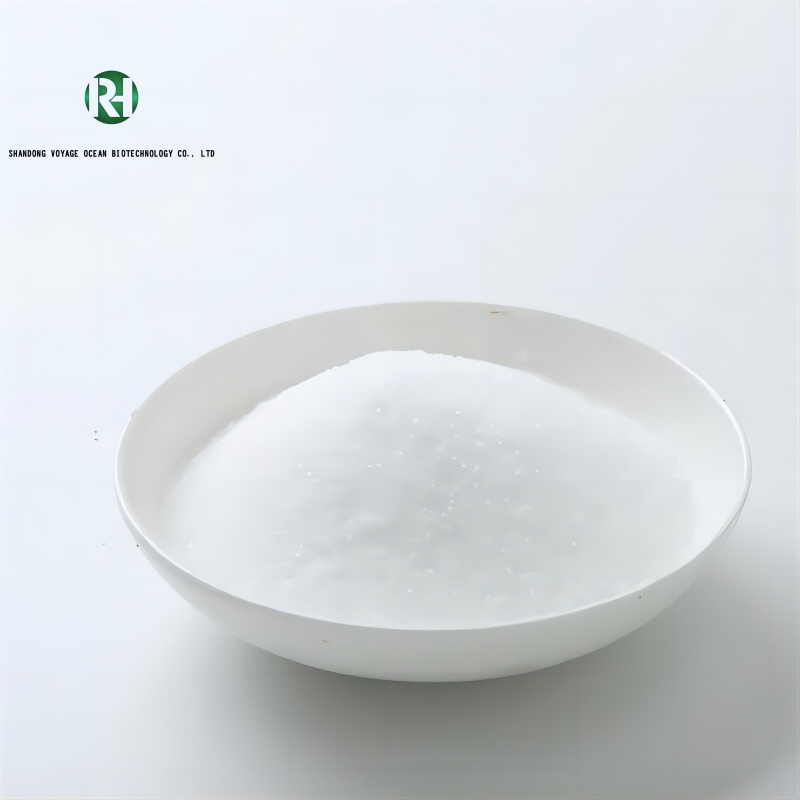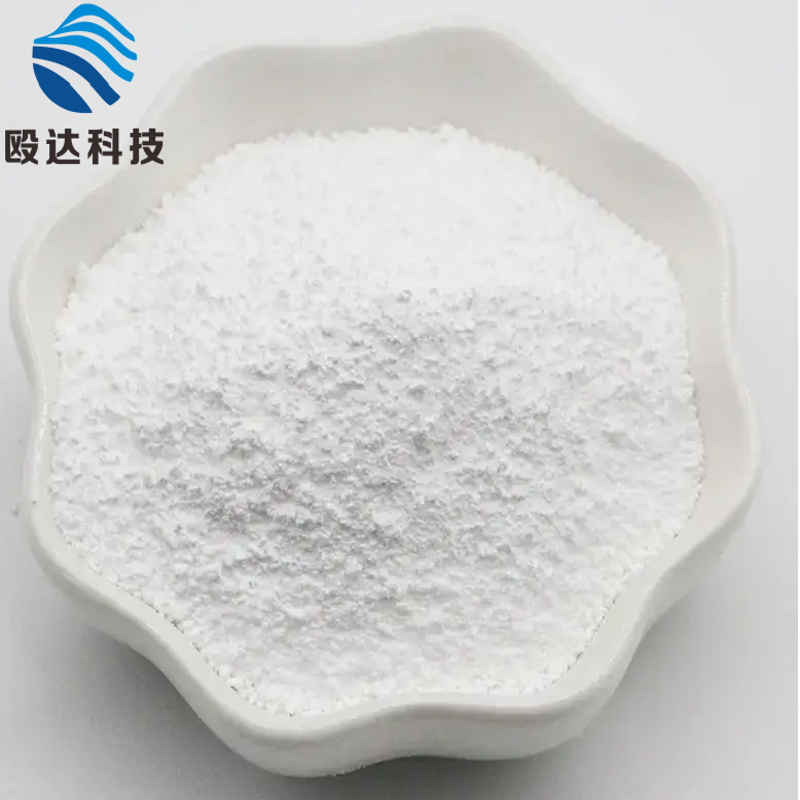The growth rate of anti-tumor small molecule targeted drugs exceeds 50%, and the market competition of 10 + billion
-
Last Update: 2019-07-05
-
Source: Internet
-
Author: User
Search more information of high quality chemicals, good prices and reliable suppliers, visit
www.echemi.com
Highlights: on May 20, 2019, the anti-tumor generic drug gefitinib developed by Zhengda Tianqing Pharmaceutical Group obtained the drug registration approval issued by the National Drug Administration (nmpa) So that the domestic gefitinib manufacturers have formed a tripartite pattern of AstraZeneca, Qilu pharmaceutical and Zhengda Tianqing The anti-tumor small molecule targeted drugs in domestic R & D pipeline are blooming and bearing fruit In this way, the market of anti-tumor small molecule targeted drugs will continue to be shuffled Taking stock of small molecule targeted drugs listed in China, according to the data of mienei.com, China's public medical institutions (China's urban public hospitals, county-level public hospitals, urban community centers and township health centers) have reached a market scale of 76.515 billion yuan, an increase of 13.23% over the previous year With the improvement of Chinese people's living standards, the awareness of great health and the demand for precision medical care are changing with each passing day In addition, under the influence of the general trend of aging population in China, many factors constitute the growing demand of drug market and promote the growth of drug market In particular, the market of antitumor drugs has attracted much attention In the past two years, the domestic market of anti-tumor therapy has accelerated the use of large molecule monoclonal antibodies and small molecule targeted drugs As we all know, targeted drugs have become one of the first choice drugs for precision medicine in China According to the data of the State Food and drug administration, 30 small molecule targeted drugs have been approved at present The first type of small molecule targeted drugs independently developed in China are exetinib of Beida pharmaceutical, apatinib and pyrrolidine of Hengrui pharmaceutical, fuquinotinib of Hutchison Whampoa, and androtinib of Zhengda Tianqing At the same time, the small molecule targeted generic drugs approved are imatinib and dasati Domestic small molecule targeted drugs, such as nifedipine, gefitinib, bortezomib and ledonamide, account for 1 / 3 of the total Small molecule targeted drugs have grown by more than 50% rapidly According to the data of mienei.com, in 2018, the amount of small molecule targeted drugs used in public hospitals in key provinces and cities reached 3.879 billion yuan, an increase of 50.72% over the previous year There are 25 drugs in the statistical data of anti-tumor small molecule targeted preparations Since 2017, 11 small molecule targeted drugs have been launched Among them, the varieties listed in 2017 are oxotinib of AstraZeneca, ibotinib of Janssen, regofinib of Bayer, afatinib of bringer Ingelheim and lucotinib of Novartis In 2018, the listed varieties are androtinib capsule of Zhengda Tianqing Pharmaceutical Co., Ltd., pyrrolotinib tablet of Jiangsu Hengrui Pharmaceutical Co., Ltd., serenitinib capsule of Novartis Co., Ltd., isazolam capsule of Wutian Co., Ltd., vimofinib tablet and aleutinib capsule of Roche Co., Ltd In 2018, the clinical use of these 11 drugs in public hospitals in key provinces and cities totaled 171.57 million yuan, with a year-on-year growth rate of 1707.9%, showing a rapid growth trend Sales of small molecule targeted drugs in public hospitals of key provinces and cities (unit: 100 million yuan) sales of new small molecule targeted drugs in public hospitals of key provinces and cities (unit: 10000 yuan) top 5 small molecule targeted drugs increased by 46.89% in 2018 According to the data of mienei.com, in 2018, the top 5 small molecule targeted drugs used in public hospitals in key provinces and cities in China were imatinib tablets and capsules, gefitinib tablets, bortezomib for injection, exetinib tablets and sorafenib tablets; the drug amount was 2.819 billion yuan, an increase rate of 46.89% over the previous year It occupies 72.67% of the total market of 25 anti-tumor small molecule targeting agents Gefitinib is a selective EGFR tyrosine kinase inhibitor In February 2005, gefitinib, a small molecule targeting drug originally developed by AstraZeneca, has entered the Chinese market, and its trade name is IRESSA At present, gefitinib is included in the national medical insurance catalog It is the first targeted drug for the treatment of non-small cell lung cancer It is used for the first-line treatment of locally advanced or metastatic non-small cell lung cancer patients with sensitive mutations in the epidermal growth factor receptor gene It is also suitable for the treatment of locally advanced or metastatic non-small cell lung cancer patients who have previously received chemotherapy 。 There is a great difference in the sensitivity of anti-tumor targeting drugs In particular, gefitinib showed a certain activity in EGFR mutations of lung cancer patients of different races, and its efficacy exceeded the common first-line chemotherapy Studies have shown that Iressa has a significant life prolonging effect on people from the east or who have never smoked It has been included and recommended in the 2005 China lung cancer clinical guidelines According to the data of mienei.com, in 2018, the market of public hospitals in key provinces and cities in China was RMB 739 million, with a year-on-year growth rate of 75.56% Yiruisha of AstraZeneca accounted for 78.11%, and yiruike of Qilu Pharmaceutical (Hainan) accounted for 21.89% Domestic gefitinib has exceeded 2 billion Sales of gefitinib in public hospitals of key provinces and cities (unit: 100 million yuan) gefitinib has reached the result of taking volume at a reduced price after entering the new medical insurance catalogue through the first batch of drug price negotiations of the national health and Family Planning Commission After the first round of 4 + 7 volume purchase, the price of IRICO (250mg * 10 tablets) of Qilu Pharmaceutical (Hainan) was adjusted to 498 yuan In the 4 + 7 centralized mining, yiruisha (250mg * 10 tablets) of AstraZeneca was selected at 547 yuan, with a decrease of 76% On May 20, 2019, the gefitinib tablet developed by Zhengda Tianqing Pharmaceutical Co., Ltd has obtained the drug registration approval from the State Drug Administration Gefitinib will form a tripartite pattern of AstraZeneca, Qilu pharmaceutical and Zhengda Tianqing In 2019, gefitinib will become the leading drug targeting lung cancer in China Ektinib increased by 54.27% Ektinib is the first small molecule targeted anti-tumor drug with completely independent intellectual property rights developed by Zhejiang Beida Pharmaceutical Co., Ltd and its trade name is "Kemena" It is the same generation of tyrosine kinase inhibitors as gefitinib of AstraZeneca and erlotinib of Roche, and is used for advanced non-small cell lung cancer Exetane has Chinese, American and international patents It is similar to gefitinib and erlotinib in chemical structure, molecular mechanism of action, efficacy and other aspects, but it has better safety Therefore, it has been highly praised by international clinical oncologists and has been included in the national class B medical insurance catalog Exetane has the same efficacy and safety as gefitinib in the treatment of advanced NSCLC It is an important local product in the market of NSCLC Under the promotion of domestic "TiNi" clinical drugs, it gradually broke the situation of Western drug monopoly market In May 2016, after the results of the national drug price negotiation were released, the price of exetane was reduced by 54% According to the company's data, the large-scale effect brought by the price reduction of ektini is obvious, and the sales volume in 2016 and 2017 has increased substantially, basically making up for the impact of the price reduction In 2018, Beida pharmaceutical industry focused on promoting the implementation of medical insurance policies in all regions, and completed the connection of relevant policies for the implementation of medical insurance category B directory In terms of hospital drug delivery, in addition to consolidating the hospital market in big cities, it will expand to the second and third tier city hospital market According to the data of mienei.com, in 2018, the market of the public hospitals in key provinces and cities in China was 430 million yuan, with a year-on-year growth rate of 54.27% Sales situation of key provinces and cities' public hospital terminal exetinib (unit: RMB 100 million) Imatinib of Novartis entered the Chinese market in 2002 It is a commercial name of Gleevec It is used to treat patients with chronic myeloid leukemia in acute stage, accelerated stage or after failure of α - interferon treatment; patients with malignant gastrointestinal stromal tumor that cannot be surgically removed or metastasized In 2013, imatinib tablet of Jiangsu Haosen Pharmaceutical Group was listed under the trade name of Xinwei In 2014, imatinib capsule of Zhengda Tianqing Pharmaceutical Group was listed under the trade name of genico; subsequently, imatinib tablet of Shiyao group was listed under the trade name of nolinine According to the data of mienei.com, in 2018, the market of imatini, a public hospital in key provinces and cities in China, was RMB 831 million, with a year-on-year growth rate of 17.18% Novartis accounted for 79.54% of the total, showing a downward trend year by year Xinwei accounted for 11.81% of the total, genico accounted for 7.98% of the total, and nolinin accounted for 0.67% of the total Imatinib sales of public hospitals in key provinces and cities (unit: 100 million yuan) sorafenib growth rate: 93.14% In recent years, targeted drugs have made great progress in the treatment of advanced renal cancer, showing the competition of the treatment drugs of Pfizer's sunitinib, Bayer's sorafenib, Novartis's everolimus, Pfizer's acitinib and Japan's Novartis combined with everolimus In 2018, the global targeted therapeutic drugs for renal cell carcinoma reached US $12 billion, an increase of 20% over the previous year According to the data of mienei.com, in 2018, the market of solafeni, a public hospital in key provinces and cities in China, was 361 million yuan, with a year-on-year growth rate of 93.14% In recent years, Pfizer's small molecular targeting agents, sunitinib and acitinib, have been listed in China for the treatment of renal cancer, which has intensified the competition in the renal cancer market Sales of terminal sorafenib in public hospitals of key provinces and cities (unit: 100 million yuan) sorafenib is a new multi-target oral drug for tumor treatment developed by Bayer pharmaceutical company and onyx company In December 2005, FDA approved the listing of Nexavar Sorafenib is the first multi-target drug approved for clinical use in the world, which can significantly inhibit tumor cell proliferation and tumor angiogenesis In September 2006, with the approval of the State Food and drug administration, Bayer's sorafenib was registered and listed in China under the trade name of dorgime Renal cell carcinoma (RCC) is a common malignant tumor in human beings, and it is also the second most common disease in urinary system, which is only next to bladder cancer Operation is the main treatment of renal cancer, but the recurrence rate and metastasis rate of high-risk patients are relatively high, and the prognosis is poor However, the exploration of hormone, chemotherapy, immunoadjuvant therapy and postoperative adjuvant radiotherapy has not achieved positive results The efficacy of sorafenib in the treatment of advanced renal cancer in China is significantly better than that in Europe and America It is the only new drug approved by FDA in the past 10 years for the treatment of renal cancer This product is also the only small molecule targeted drug that can be used to treat liver cancer, and it has a certain application prospect in non-small cell lung cancer, breast cancer and other clinical applications Market prospect of small molecule targeted anti-tumor drugs according to the information released by FDA drug evaluation and Research Center, 60 small molecule targeted anti-tumor drugs have been on the market since erdafitinib (balversa), a small molecule targeted drug for locally advanced metastatic bladder cancer approved by FDA in the first half of 2019 After entering the 21st century, the new small molecule targeted drug is a unique drug with unique mechanism Since the first World War of Gleevec, which is represented by tyrosine kinase inhibitors (TiNi), the new products in the R & D pipeline have entered the clinical practice one after another, and the varieties after being put on the market have achieved excellent sales performance Domestic R & D pipeline data, domestic R & D of TiNi drugs up to dozens of varieties
This article is an English version of an article which is originally in the Chinese language on echemi.com and is provided for information purposes only.
This website makes no representation or warranty of any kind, either expressed or implied, as to the accuracy, completeness ownership or reliability of
the article or any translations thereof. If you have any concerns or complaints relating to the article, please send an email, providing a detailed
description of the concern or complaint, to
service@echemi.com. A staff member will contact you within 5 working days. Once verified, infringing content
will be removed immediately.







